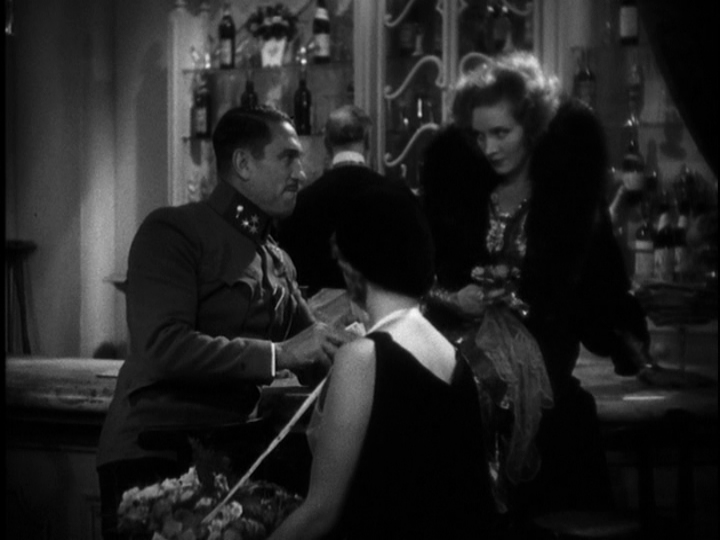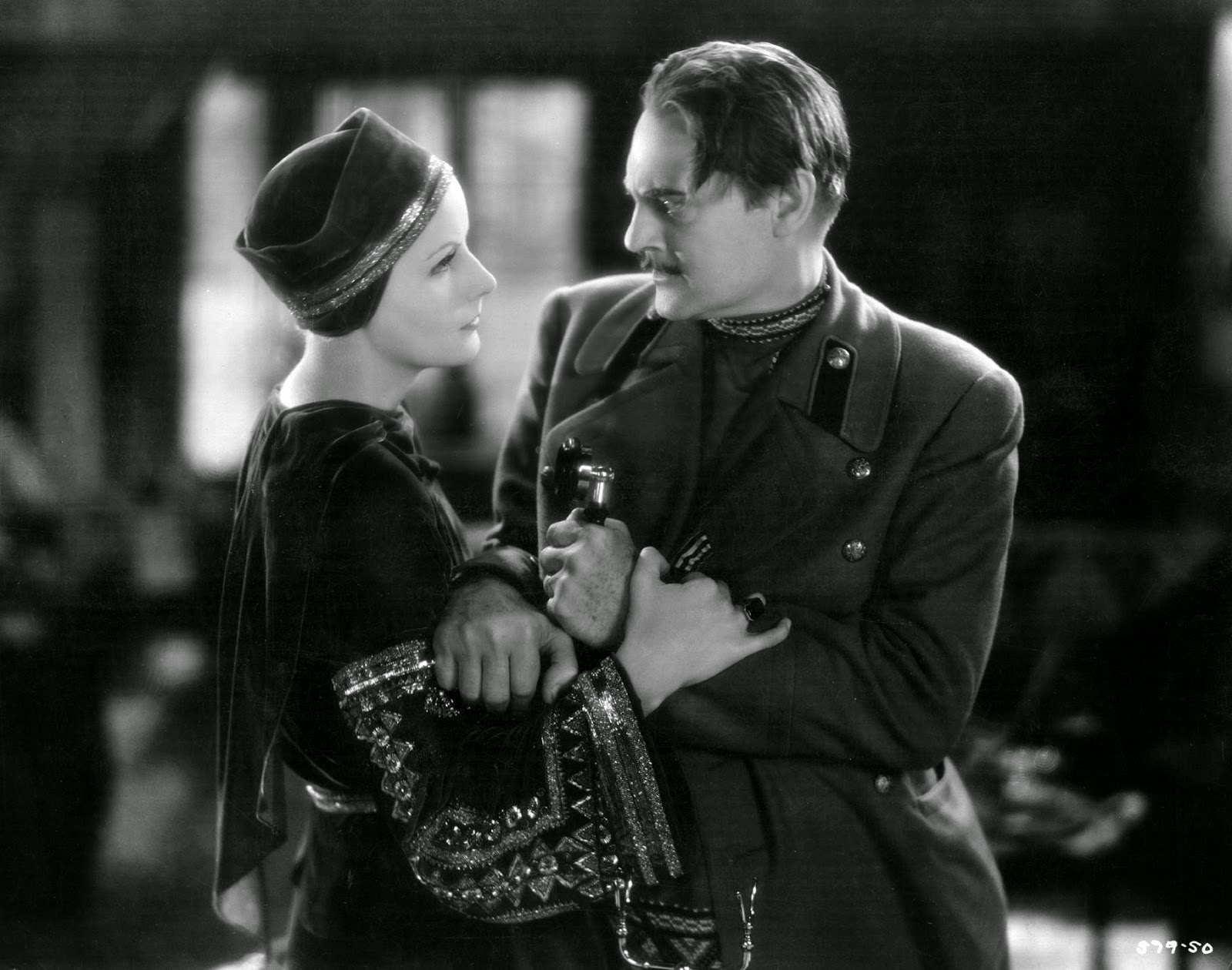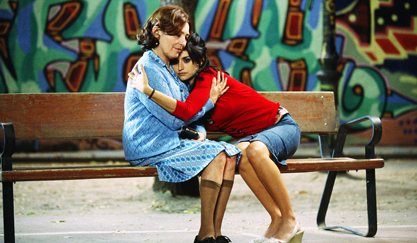At the height of the Hollywood studio system off the
1930’s and 1940’s the major studios developed fierce rivalries with one
another. In order to draw audiences away from their rivals, studios would try
to out-do one another by copying each other’s successes. As a result, for reach
studio’s star, another studio had a star marketed for similar appeal, and for
each box office hit another, almost identical film was released in hopes of
luring the original film’s audience. One particularly interesting rivalry was
the one that studios created between actresses Greta Garbo and Marlene
Dietrich. After Swedish starlet Garbo made the difficult transition to sound
with her fan base intact, Paramount imported German screen sensation Dietrich
in hopes of replicating MGM’s success. When Garbo continued to remain a fan
favorite over her newly arrived competitor Paramount resorted to promoting
Dietrich in films that directly mirrored Garbo’s despite the obvious
differences between the two’s acting styles and screen personas. One such
instance is Paramount’s 1931 release of Dishonored,
a World War I spy thriller that followed in the footsteps of the MGM hit Mata Hari released earlier that same
year. While both films provide interesting twists on the popular genre, which
movie can claim the more adept agent, the more thrilling twists, and ultimately
the sultrier spy?
 |
| The improvising strippers had to do before poles |
Ladies
With Pasts: Although both films focus upon their
heroine’s spy-jinks, both also lend more credibility to their stories by
providing their leading ladies with civilian lives outside of their
intelligence work. Because Mata Hari
was loosely inspired by a true story, screenwriters were forced to keep their
script generally aligned with history. As a result Mata retains her larger than
life persona as an exotic burlesque dancer and courtesan who conducts her top
secret work under the watchful eyes of the very authorities who should be
tracking her. Mata’s double life as a stage sensation lends the story a unique
dynamic as her star status allows her to routinely break social norms and
flaunt her scandalous behavior under the guise of being a temperamental artist
without raising suspicion. Her stage success also places her in a position in
which she can disobey her superiors’ orders with minimal consequences because
her career allows her to travel across enemy lines with little difficulty,
making her an agent with valuable leverage. Despite the story’s attention to
the nuances of her double life, however, the script fails to explain why she, a
Dutch citizen, would risk her life for Germany in an effort to betray France,
the nation in which she has achieved her lavish lifestyle. There is also no
motive to lend credibility to her willingness to engage in such dangerous work
as she displays little allegiance to any nation. As a result, it is difficult
to identify with Mata’s later crisis of conscience as she seems to be following
orders more as an act of flippant rebellion than as matter of political or
personal loyalty.
In Dishonored,
Dietrich’s Maria, also known as Agent X27, is a far more ordinary woman caught
up in extraordinary circumstances. At the film’s start, she is working as a
prostitute after being left a destitute widow in the wake of World War I. When
Austrian intelligence approaches her about using her seductive skills to help
her country she accepts for lack of other options rather than out of a sense of
patriotic duty. Although fictional, this scenario is far more believable than
the sensationalized Mata Hari in its
portrayal of its heroine’s hopeless desperation driving her into the dangerous
would of international espionage. Maria’s existential quest through a world of
deception and betrayal also reflects the void that modern life became for World
War I’s ‘Lost Generation’ upon returning home, placing the story within the
historical context of the era in which it takes place and the equally
disillusioned era it was released in. Through its portrayal of the spy as just
another disillusioned soldier, the film draws sympathy for its heroine without
resorting to cliché twists and moral turns. For its hard-hitting portrayal of
an average woman’s journey through the maze of modern warfare, dishonored wins
the battle for most resonant and believable backstory.
 |
| Happy hour anyone? |
The
Company They Keep: While spy thrillers are known for their
roguish heroes and vampish heroines, they are also equally known for their
lackluster love-interests. Long before interchangeable Bond-girls became
synonymous with the genre, spy thrillers had been filling screens with romantic
leads whose roles were as flimsy as the special effects that they worked with.
Unfortunately, Dishonored falls into
this all too common trap by having Maria meet her match in a male spy from an
enemy nation. While the idea of two agents brought together by the very work
that threatens to tear them apart has the potential to create an interesting
dynamic, the plot fails to bring them together so much as have them
occasionally bump into each other. While the two do meet several times during
their missions, their interactions are always cut short and their exchanges are
limited to shop-talk and innuendo. As a result, the pair are little more than
acquaintances when the plot calls for them to be tragic lovers. This forced
plot twist is made even more obvious by the lack of chemistry between Victor
McLaglen’s Colonel Kranau, whose attempts to woo his fellow spy consist
primarily of grinning lasciviously, and Dietrich’s Maria, whose cool sex appeal
better fits the detached prostitute that she begins the film as. By the time
that the film reaches a truly unique climax it is difficult for audiences to
remain invested in its heroine, whose downfall seems to be an illogical
surrender to temporary lust rather than a self-sacrificing love.
While Mata
Hari’s naïve Alexis (Ramon Navarro) appears to be a strange choice to catch
the notorious Mata’s eye, it is the offbeat nature of their relationship that
makes it endearing. Rather than a conventional, macho, leading man he is
instead a star struck fan who worships Mata to the point of becoming a pest.
While he is repeatedly referenced to be a hero in the Russian air force, he
seems to be in more need of rescuing than her. She initially goes out with him
to spite her superiors and only allows him to spend the night with her as an
act of pity, certain that he’ll return to the front and never see her again.
When she is assigned to obtain information from him, however, she is forced to
spend more time with him and eventually develops a friendly fondness for him
that threatens to develop into something more. While the spy who falls for
their assignment was already an established cliché, Mata Hari provided a logical backstory to make the relationship
credible and just enough original flair to make the plot almost feel fresh.
Unlike Maria and Colonel Kranau’s convenient change of heart, Mata and Alexis’
relationship follows a natural trajectory with her feelings developing from
pity and guilt to respect and genuine affection and Alexis’ idolizing of her
evolving into understanding and real romance. Although Ramon Novarro is less
than convincing as a Russian pilot with his heavy Spanish accent, he imbues
Alexis with an innocence, kindness, and goofy charm that could soften even the
most cynical secret agent. For its quirky take on what could have been a tired
story, Mata Hari claims victory for
the more memorable relationship and a truly lovable love-interest.
 |
| The best spies shoot from the hip! |
Star
Quality: In casting Greta Garbo as Mata Hari, MGM made a wise
business decision. Mata Hari went on to become one of the top
box-office hits of 1931 and continues to be a favorite of Garbo fans, even
making cameos in more recent releases. While Mata could have easily been a
stereotypical femme fatale, Garbo instead gave audiences the multifaceted
performance that they had come to expect of her. Rather than the extremes of
the haughty vamp and the self-sacrificing lover that the script alternates
between portraying her as, Garbo’s Mata is a complex character who shifts from
glamour girl, to enticing agent, to stifled celebrity, to devoted companion
without hitting a single false note. As a result, she is a character whom
audiences can come to know and root for because of her many strengths and
despite her many faults. Paramount was equally business savvy when they cast Dietrich
in Dishonored. Dietrich possesses just the right blend of smoldering sex appeal
and cool detachment to portray her own enigmatic agent. Unfortunately, while
Maria makes for an ideal blank slate, she is also in many ways reduced to a
type. While viewers get to see the desolation of WWI Vienna that drives her
first to prostitution and then to espionage we are never able to see what
beyond her reduced circumstances motivates her. As a result, the audience is
shown her actions but never the emotional or psychological reasoning behind those
actions. Thus, audiences are forced to settle for Dietrich’s usual,
albeit thoroughly entertaining persona just when the story begins to demand the
presence of a full-fleshed character. Dietrich’s mystique, while befitting for
a spy, fails to provide viewers with any real insight into the woman behind the
code name, making it difficult to be fully invested in Maria’s adventures or
their consequences.
Both Dietrich and Garbo bring their full talents to
the table in two of the better performances of their lengthy careers, making
for a tight competition. This final category, even more so than the previous
two, comes down to a matter of personal taste. Personally, I prefer to know
what makes a character tick rather than be kept constantly guessing as to why
as well as what they’ll do next. For her three-dimensional performance of what
easily could have been a cardboard character, I give Garbo the slight edge,
leaving Mata Hari the victor to whom
goes the bragging rights. Tell me what your favorite spy films are in the
comments!
 |
| Think twice before you steal Greta's spotlight! |
If you'd like more on seductive spying check out my full-length stage drama Through Enemy Eyes http://www.jacpub.com/Full-Length/Ennis_EnemyEyes.htm






